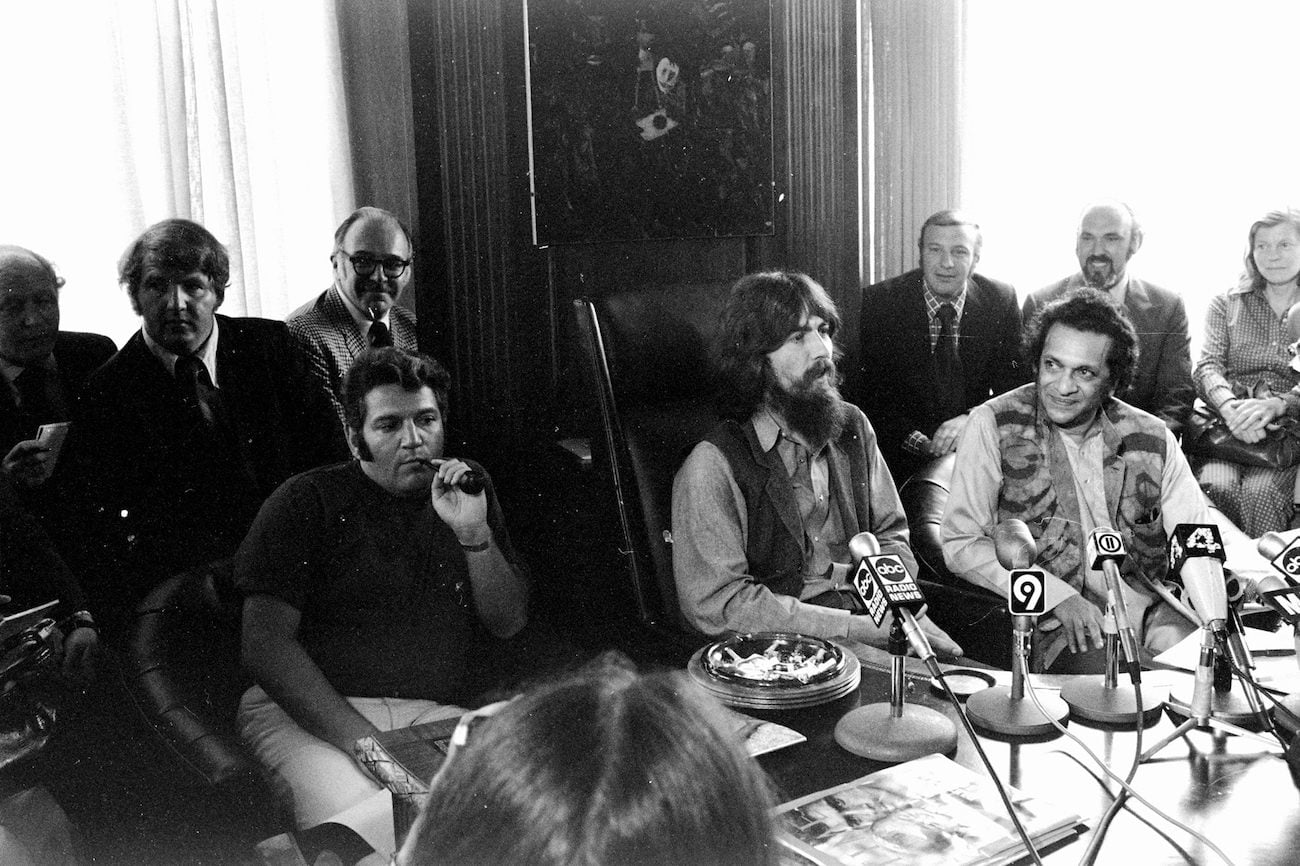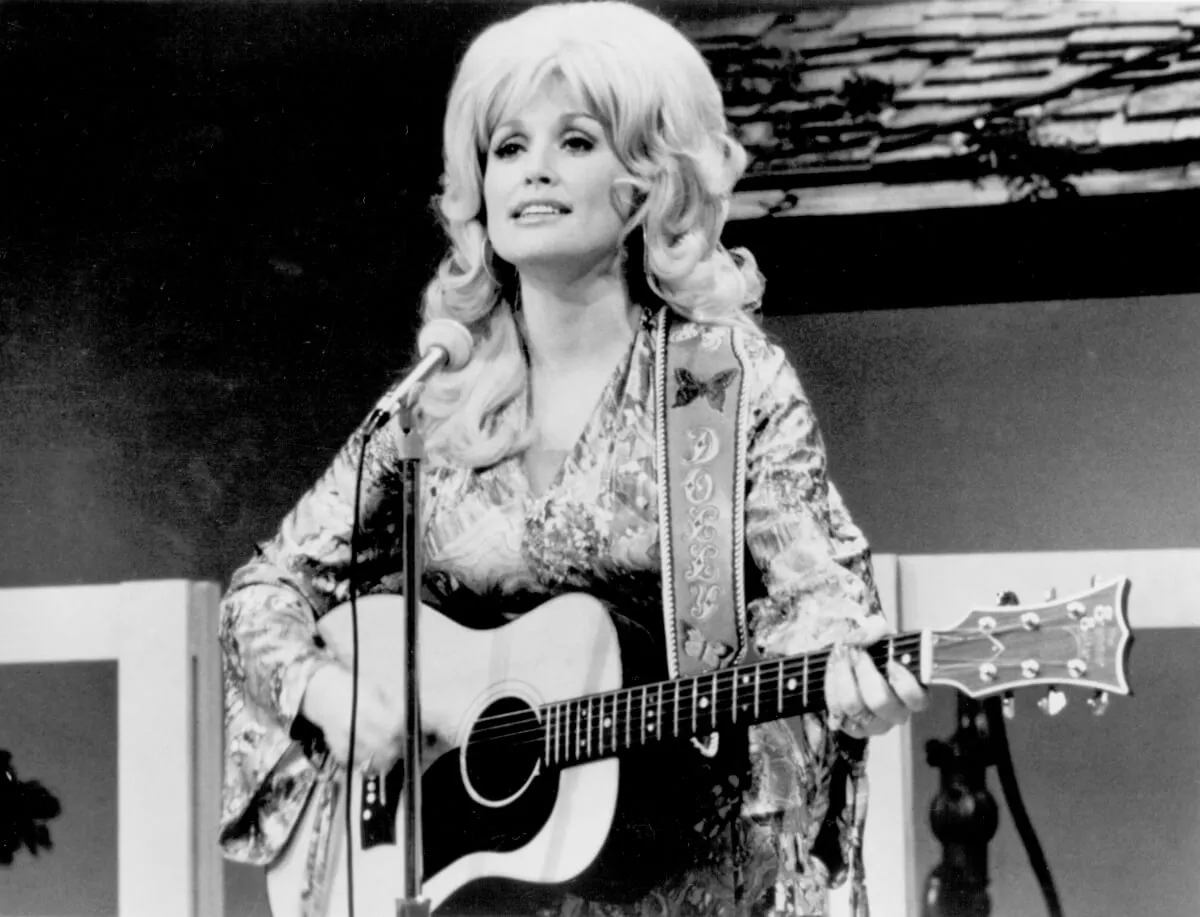
George Harrison Had a ‘Fair’ Plan for a Second Benefit Concert
George Harrison organized his benefit concert, the Concert for Bangladesh, in 1971. His friend and musical guru, Ravi Shankar, asked him for help organizing a concert that would earn money for refugees. He only expected to raise about $25,000, but George knew he could do better if he took control and got some famous friends to play at a two-show benefit concert.
The Concert for Bangladesh was, for the most part, a success. The funds it raised didn’t exactly get to the refugees promptly, but the benefit concert paved the way for more. The former Beatle even thought of organizing a second, more “fair” benefit concert.

George Harrison organized the Concert for Bangladesh
In late 1971, Shankar told George about the humanitarian crisis in East Pakistan.
A devastating cyclone killed 500,000 people. After months of inaction from the West Pakistani government, people wanted a change. Eastern nationals declared themselves the independent country of Bangladesh. It started a bloody war. The Western Pakistani troops committed genocidal acts on the Bengali people.
In 1997, Shankar told John Fugelsang at VH1 (per George Harrison on George Harrison: Interviews and Encounters) that he’d started planning a benefit concert himself. He expected to raise about $25,000. George believed he could do better.
“The more I read about it and understood what was going on, I thought, ‘Well, we’ve just got to do something,’ and it had to be very quickly,” George told Fugelsang. “And what we did, really, was only to point it out. That’s what I felt.”
George’s former bandmate John Lennon gave him the confidence to begin organizing the benefit concert.
“I think that was one of the things that I developed, just by being in the Beatles, was being bold. And I think John had a lot to do with that, you know, cause John Lennon, you know, if he felt something strongly, he just did it.”
George consulted an Indian astrologer to find the perfect date for the benefit concert. He set it for August 1, 1971, at New York City’s Madison Square Garden. He got his friends Leon Russell, Eric Clapton, Billy Preston, Klaus Voormann, Badfinger, Bob Dylan (who was almost a no-show), and his former bandmate, Ringo Starr.
George told all of the musicians who agreed to help that even if the benefit concert didn’t do well, at least they did what they could. He raised $243,000 overnight, according to the Guardian. Millions more would come from the sales of the live album.
George had a plan for another benefit concert
During an interview on The Dick Cavett Show, George admitted he thought of organizing another benefit concert. However, he’d do it a little differently.
“Yeah, maybe, maybe,” George said. “I thought … you see it’s difficult, not all musicians are rich enough through record sales or such like, to be able to donate their services all the time, so I figured a good way to do it would be, maybe, two concerts in each town, like, similar to Madison Square.
“The first show we keep the money and the second show we give the money to the charity, and that way we can feed the starving musicians, and the second we can feed the people. I think that sounds fair.”
George gave the money to UNICEF
There was another thing George would’ve done differently with a second benefit concert. He would’ve given the money raised to someone who could get it to those who needed it fast. George thought he did that after the Concert for Bangladesh, but it didn’t quite work out.
He told Cavett that he chose not to give the funds to the Red Cross because he claimed they were racist. George and Shankar agreed to give the money to UNICEF.
“They have to say to us exactly what they need, and they can come to us and say we need this and this and this, and then we’ll sign the check and let them buy the things they need,” George told Cavett. “So the concert made $250,000, which actually is really very small in terms of the amount of money we’re going to make from the record.”
Choosing UNICEF was their only smart move. In 1985, the LA Times reported that nearly $12 million had been sent to Bangladesh ‘as a result of the concert proceeds and subsequent investments.”
However, there was a problem; 85% of that money didn’t get to Bangladesh for more than a decade, according to the U.S. Committee for UNICEF. The delay occurred because the proceeds were handled by a profit-making company, The Beatles’ Apple Corp., instead of a legally qualified charity.
Reviewing Apple Corp., auditors from the Internal Revenue Service “looked skeptically at claims that the Concert for Bangladesh money consisted of tax-exempt charity dollars. They ruled it was business income and thus taxable, according to an attorney at the U.S Committee for UNICEF,” the LA Times wrote.
George undoubtedly learned from his mistakes from the Concert for Bangladesh and would’ve organized a second benefit concert better.


